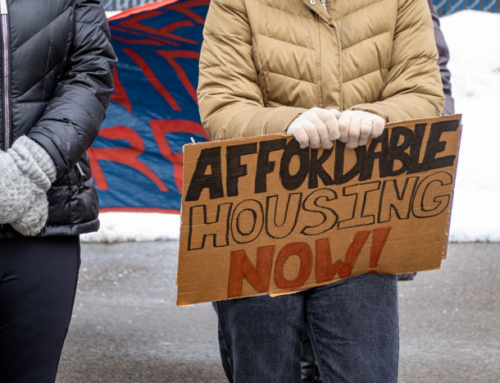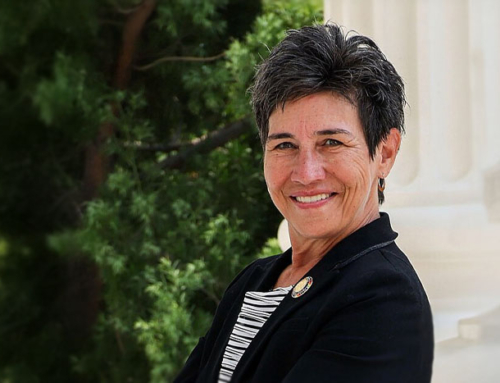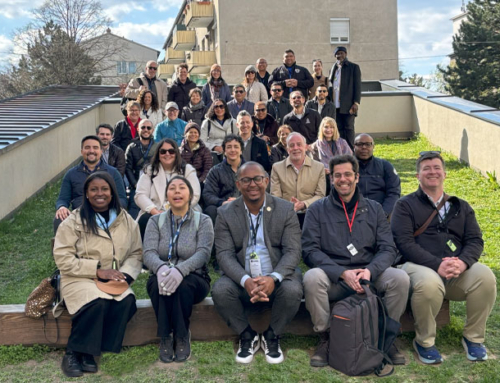February 16th marked the deadline for new bills to be introduced for this year’s legislative session; 2,124 new bills were introduced, many of which attempted to tackle controversial issues beyond housing, including artificial intelligence and reparations. Some of these bills are “spot bills,” with details that still need to be fleshed out. All spot bills must be amended by March 18th to proceed through the remainder of the legislative process.
Senate members waited to finalize their bill packages until after the new Pro Tempore, Mike McGuire (D-Santa Rosa), formerly announced his leadership team and committee changes, which include Sen. Nancy Skinner (D-Oakland) as Housing Committee Chair and Scott Wiener (D-San Francisco) as Budget Committee Chair.
Several notable housing and homelessness-related bills were introduced, covering all 5Ps: Produce Housing for All, Preserve Vulnerable Housing, Prevent Displacement, Protect Tenants and Small Landlords, and Promote Equity and Inclusion. These include:
Produce Housing for All
- AB 1893 (Wicks, D-Oakland) would modify the infamous “builders remedy,” the law that states that if a jurisdiction does not have a “substantially compliant” housing element, jurisdictions cannot use its own zoning or general plan standards to disapprove any housing project that meets the 20% affordability requirements. This bill is intended to make the tool more accessible in cities that continue to find paths to deny these projects and attempts to put guardrails on allowable densities for such projects.
- SB 937 (Wiener, D-San Francisco) would temporarily defer cities’ collection of development fees (also known as impact fees), allowing more housing projects to pencil out. The legislation also extends entitlements, allowing projects on pause due to high-interest rates to retain a key permit until market conditions improve. SB 937 provides builders with the flexibility to navigate challenging market conditions while protecting a key source of revenue for local governments.
- SB 1210 (Skinner, D-Oakland) would reduce the cost of housing by lowering and capping utility hook-up fees, such as for water, sewer, electrical, and gas service, on all new housing units. Currently, hook-up fees for electric, gas, sewer, or water service can add tens of thousands of dollars to the cost of each housing unit, including ADUs. Under SB 1210, each utility hook-up fee would be capped at 1% of the cost of the building permit value of the housing unit. In addition, property owners would be allowed to pay hook-up fees over a 10-year period rather than upfront. SB 1210 would also require utilities to post the fees they charge on their websites and prioritize housing utility hook-ups over other structures.
- SB 1211 (Skinner, D-Oakland) would allow more detached ADUs on properties with multifamily housing. For example, a property with 24 apartments would be eligible to add a minimum of two and up to six detached ADUs (space permitting). In addition, if a property owner decides to replace a carport or driveway with an ADU, they would not be required to replace that parking.
Preserve Vulnerable Housing
- AB 1789 (Quirk-Silva, D-La Palma) would expand the California Housing and Community Development Department’s (HCD) Portfolio Reinvestment Program by authorizing the provision of loans and grants for rehabilitating projects that are at least 15 years old and have insufficient access to private/public resources to complete necessary rehabs. This bill would give priority to projects that have expired covenants or covenants that have less than ten years remaining or are otherwise at risk for conversion.
- SB 1212 (Skinner, D-Oakland) would increase opportunities for homeownership by barring hedge funds and other corporate investment entities from buying single-family homes, defined as comprising one or two residential units, in California starting in 2025.
Promote Equity and Inclusion
- AB 1788 (Quirk-Silva, D-La Palma) would establish homeless adult and family multidisciplinary teams in each county to expedite outreach and services to individuals experiencing homelessness, additionally allowing the sharing of confidential information to coordinate supportive services.
- AB 1840 (Arambula, D-Fresno) includes undocumented persons in the definition of a first-time homebuyer for CA Dream for All.
- AB 1932 (Ward, D-San Diego) would formally require the state to consider how housing assistance, policies, and goals affect people experiencing homelessness in the Statewide Housing Plan process.
- AB 2520 (Ramos, D-San Bernardino) would require Continuums of Care to include youth-specific entry points, assessment, and prioritization scores, and youth-appropriate housing and services. The bill is sponsored by the California Coalition for Youth.
Prevent Displacement and Protect Tenants and Small Landlords
- AB 1813 (Alanis, R-Modesto) would establish the Senior Tenant Shallow Rental Subsidy Program of 2024. The bill would require HCD, upon appropriation by the legislature, to establish and administer a grant program for cities and counties to provide subsidies for senior citizens at risk of homelessness. The bill would require that, of the grants awarded pursuant to the program, 50% of the funds be awarded to localities with at least 250,000 residents and 50% be awarded to localities with less than 250,000 residents.
- AB 2881 (Lee, D-Milpitas) would establish the California Housing Authority to produce mixed-income housing that is affordable and financially self-sustaining. Social housing is defined as, amongst other criteria, housing where residents are granted strong tenant protections and have the right to participate directly and meaningfully in decision-making affecting the operation and management of their housing units.
Bills will likely begin moving in earnest in April once the Legislature reconvenes after Spring Recess.
© LeSar Holdings/LeSar Development Consultants. All Rights Reserved. Please be advised that any republishing of copyrighted material provided by our organization, in whole or in part, requires prior written authorization. For permission, please reach out to [email protected]. We appreciate your understanding and compliance in upholding copyright laws.






















